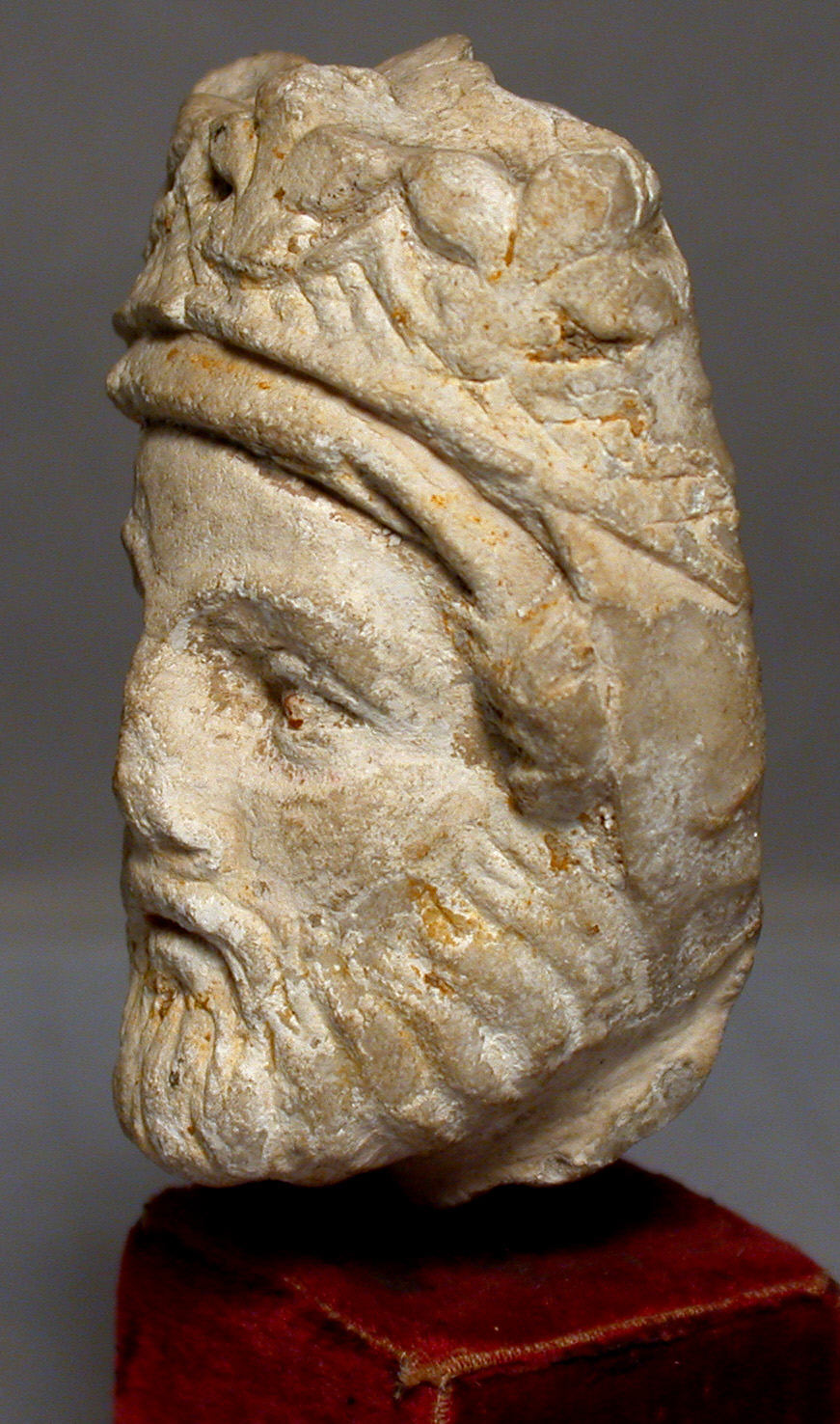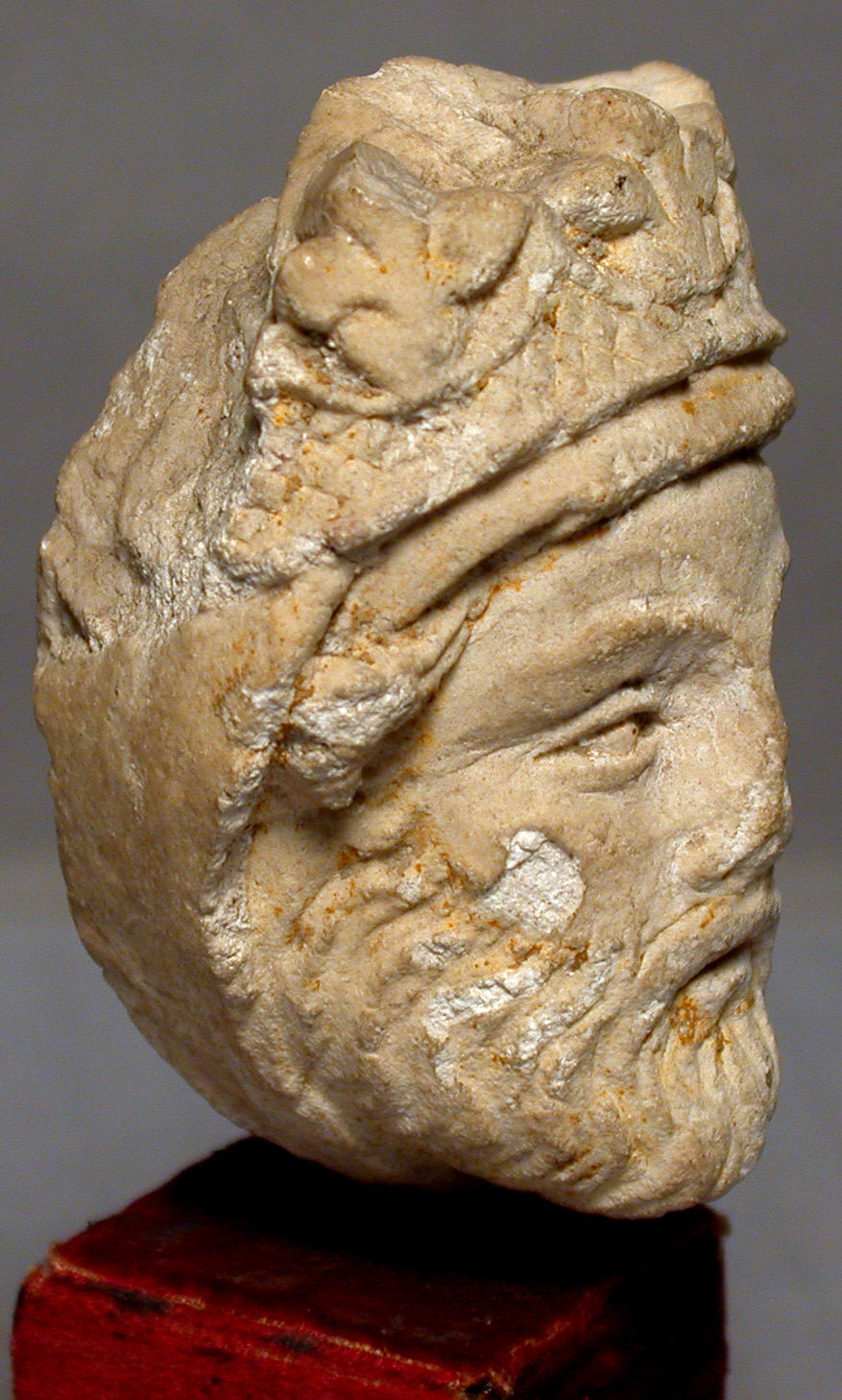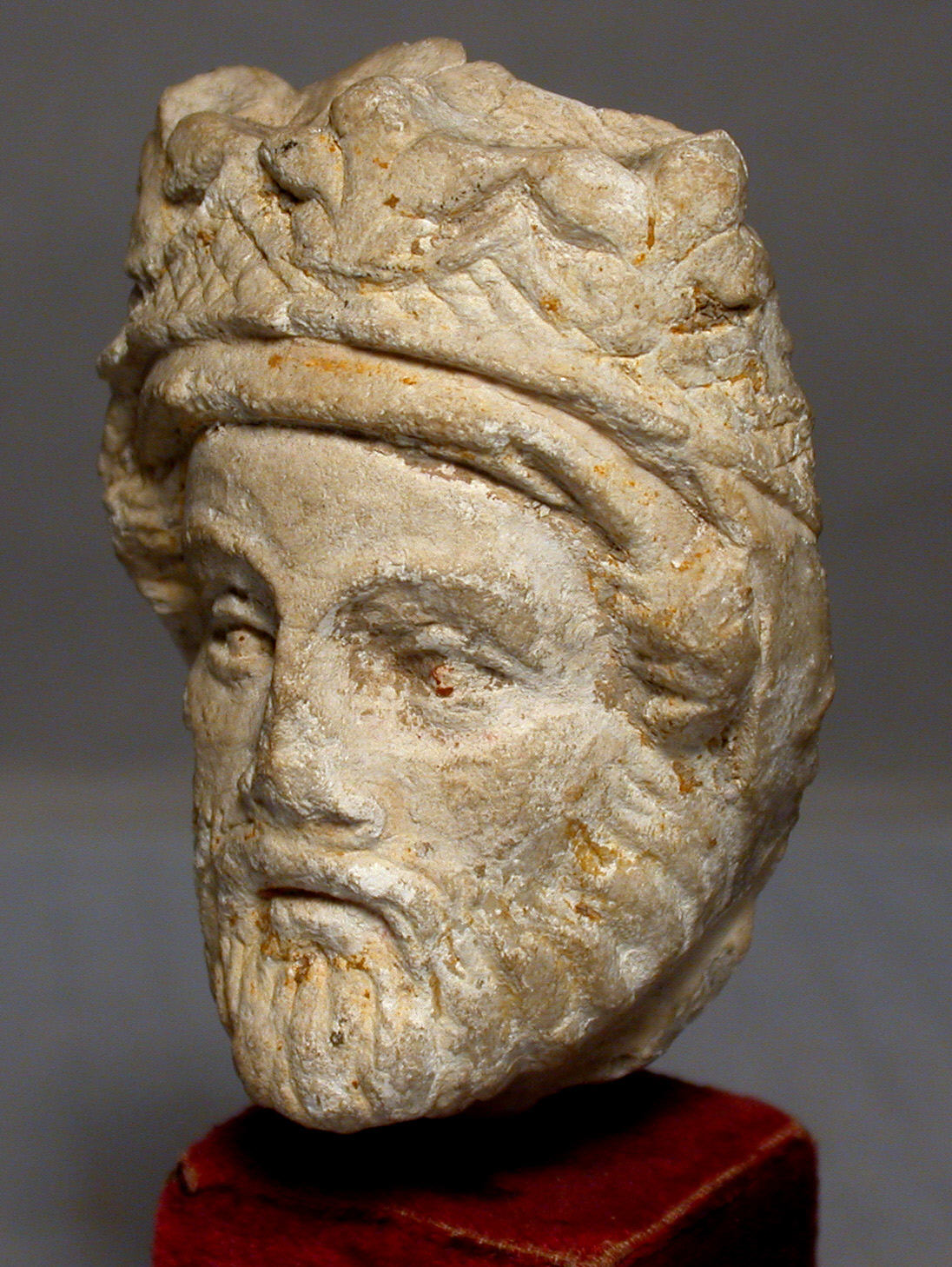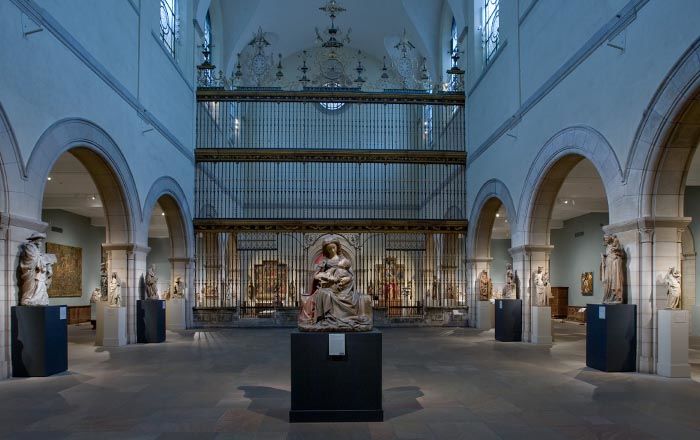Head of a Bearded King
Not on view
This diminutive head of a crowned king fits into the palm of the hand. The rough, uncarved back of the head nonetheless suggests it was originally part of a larger relief sculpture. The smooth, oval face is symmetrical, with high, lightly arched brows over eyes with fleshy lids. The nose has a slender bridge and broad nostrils, though the tip has broken off. Short, curly hair and a neatly trimmed beard frame these features, and the crown, accented with lily-shaped terminals, rests upon the head. Though carved of white marble, which often went unpainted in late medieval France, the head (including the underside of the neck) is covered in a preparatory layer intended to receive paint, and traces of color and gilding still cling to the prepared surface. This addition to the stone seems to post-date the head’s removal from its original sculpted context, hinting at an intriguing later episode in this object’s long life. In late medieval France, marble tended to be reserved for elite ecclesiastical furnishings and funerary monuments. Together with the object’s dimensions, the material indicates that the head of a king came from an altarpiece or other decoration originally intended for engagement at close proximity. It could have formed part of a narrative display, perhaps representing a biblical king such as David or Herod.
This image cannot be enlarged, viewed at full screen, or downloaded.
This artwork is meant to be viewed from right to left. Scroll left to view more.





